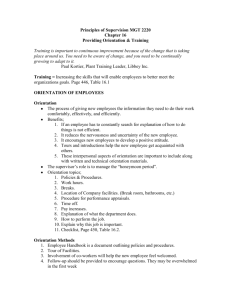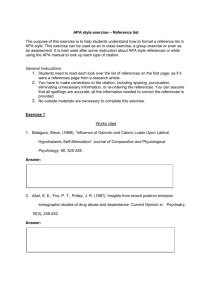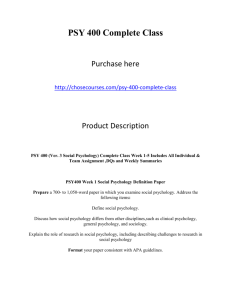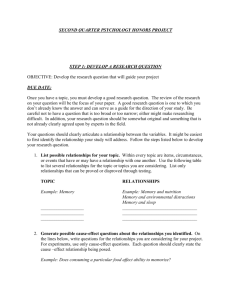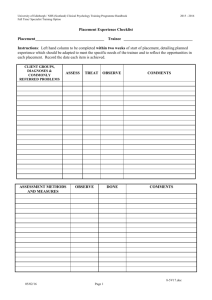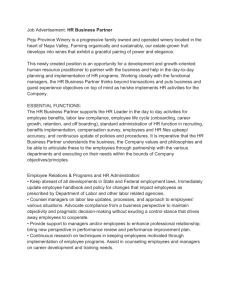Learning in the Workplace
advertisement
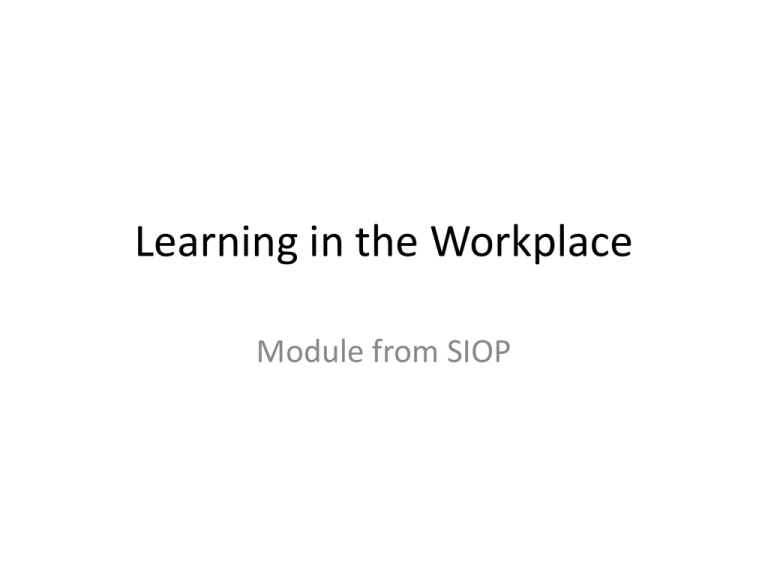
Learning in the Workplace Module from SIOP Learning in the Workplace • (assuming you have held a job) How did you learn how to perform your job? • What types of training methods do you think work best? • What makes a good teacher / trainer? Learning in Industrial-Organizational Psychology • Learning can be (but may not often be) examined through the lenses of – Classical & Operant Conditioning – Behavior Modification – Cognitive theories • Typically, “learning” science and practice in I-O Psychology tends to focus on – Types of training – The training process / training principles – Trainer and trainee characteristics Types of Training / Learning • Traditional Education / Courses – (Online or Distance-Based Courses) • Work Experiences • Mentoring • Coaching Training Process • Typical Process – Needs Analysis – Design – Evaluation • (some) Training Design Principles & Activities: – – – – – – – Spaced vs. massed practice Feedback Automaticity / Overlearning Advance Organizers Error-based learning Behavior modeling Work simulations / games Trainer / Trainee Characteristics • Trainee Characteristics – – – – – Intelligence Motivation Self-efficacy Locus of control (internal will be more motivated) Demographics • Trainer Characteristics – Clarity – Organization – Enthusiasm / Engagement For More Information… Brown, K. G., & Sitzmann, T. (2010). Training and employee development for improved performance. In S. Zedeck (Ed.), APA Handbook of Industrial and Organizational Psychology (Vol. 2, pp. 469-503). Washington, DC: American Psychological Association. Eby, L. T. (2010). Mentoring. In S. Zedeck (Ed.), APA Handbook of Industrial and Organizational Psychology (Vol. 2, pp. 505-525). Washington, DC: American Psychological Association. Goldstein, I. L., & Ford, J. K. (2002). Training in organizations (4th Ed.). Belmont, CA: Wadsworth. Peterson, D. B. (2010). Executive coaching: A critical review and recommendations for advancing the practice. In S. Zedeck (Ed.), APA Handbook of Industrial and Organizational Psychology (Vol. 2, pp. 527-66). Washington, DC: American Psychological Association.
